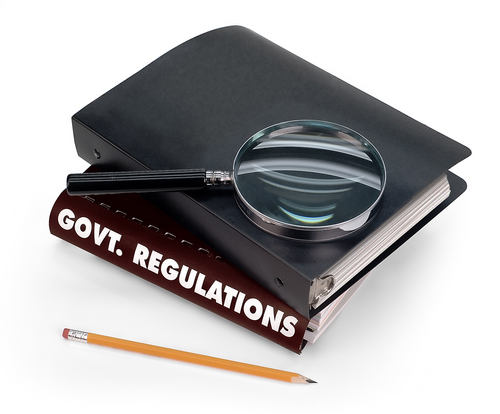[Regulation & Legal Aspects]

Executive Summary

This comprehensive guide delves into the multifaceted world of regulation and legal aspects, providing a crucial understanding for businesses and individuals navigating the complex legal landscape. We explore key areas, offering practical insights and actionable advice. From compliance strategies to risk mitigation, this resource aims to empower readers with the knowledge necessary to make informed decisions and avoid costly legal pitfalls. We’ll examine several critical subtopics, providing a clear and concise overview of essential legal considerations. The goal is to equip readers with a strong foundation for understanding and navigating the legal complexities of their specific situations. This in-depth analysis offers a strategic advantage in ensuring legal compliance and mitigating potential risks.

Introduction
Operating a business or engaging in any significant activity inevitably involves navigating a complex web of regulations and legal frameworks. Understanding these legal aspects is not merely a matter of compliance; it’s about proactively protecting your interests, building trust, and ensuring long-term sustainability. This guide serves as a vital resource, providing a clear and concise overview of key concepts and principles to help you confidently navigate the legal terrain. Ignoring legal considerations can lead to significant financial losses, reputational damage, and even criminal charges. Therefore, a proactive and informed approach is essential.
Frequently Asked Questions (FAQs)
Q1: What happens if I don’t comply with relevant regulations?
A1: Non-compliance can result in a wide range of consequences, from financial penalties and legal action to reputational damage and loss of business. The severity of the consequences will depend on the specific regulation violated and the jurisdiction. In some cases, non-compliance can even lead to criminal charges.
Q2: How can I stay updated on changes in regulations?
A2: Staying informed requires a multi-pronged approach. Regularly monitor government websites, subscribe to relevant industry newsletters and publications, and consider engaging legal professionals specializing in your industry to provide ongoing guidance and updates. Attend industry conferences and workshops to stay abreast of changes in the legal environment.
Q3: What is the role of a legal professional in this context?
A3: Legal professionals provide expert guidance and representation, helping businesses and individuals understand their legal obligations, navigate complex regulatory environments, and resolve legal disputes. They can offer crucial advice on compliance, risk mitigation, and dispute resolution. Their expertise is invaluable in preventing costly mistakes and ensuring compliance.
Contract Law
Contract law forms the bedrock of many business transactions and agreements. Understanding its principles is vital for ensuring legally sound agreements and mitigating potential disputes.
- Offer and Acceptance: A valid contract requires a clear offer from one party and an unequivocal acceptance from the other. Ambiguity in either can invalidate the agreement.
- Consideration: Each party must provide something of value in exchange for the other party’s promise. This could be money, goods, services, or a promise to do or not do something.
- Capacity: Parties entering into a contract must have the legal capacity to do so. Minors, individuals with mental incapacities, and intoxicated individuals may lack the required capacity.
- Legality: The subject matter of the contract must be legal. Contracts involving illegal activities are void and unenforceable.
- Enforceability: A contract must meet certain requirements to be legally binding and enforceable, including proper execution and the absence of duress or undue influence.
- Breach of Contract: If one party fails to fulfill their obligations under the contract, the other party may have legal remedies available, including damages or specific performance.
Intellectual Property Law
Protecting your intellectual property (IP) – trademarks, copyrights, patents, and trade secrets – is paramount for maintaining a competitive edge and securing your business’s future.
- Trademarks: These protect brand names, logos, and other identifying marks used in commerce. Proper registration ensures exclusive rights and provides legal recourse against infringement.
- Copyrights: This protects original works of authorship, including literary, dramatic, musical, and certain other intellectual works. Copyright protection is automatic upon creation, but registration offers several advantages.
- Patents: These protect inventions, providing exclusive rights to manufacture, use, and sell the invention. Securing a patent requires a rigorous application process.
- Trade Secrets: This protects confidential information that provides a business competitive advantage. Trade secrets require active measures to maintain confidentiality.
- IP Infringement: Unauthorized use of intellectual property can result in significant legal repercussions, including injunctions, monetary damages, and criminal prosecution.
- Licensing: Granting licenses allows others to use your IP under specific terms and conditions, generating revenue and expanding market reach.
Employment Law
Navigating the intricacies of employment law is crucial for both employers and employees. Compliance is essential to avoid costly legal challenges and maintain a productive work environment.
- Employment Contracts: These legally bind employers and employees, outlining terms of employment, responsibilities, and compensation. Clear and comprehensive contracts are crucial.
- Equal Employment Opportunity: Laws prohibit discrimination based on race, religion, gender, age, disability, and other protected characteristics.
- Wage and Hour Laws: Employers must comply with federal and state laws concerning minimum wage, overtime pay, and record-keeping requirements.
- Employee Safety and Health: Employers have a legal duty to provide a safe working environment and comply with occupational safety and health regulations.
- Workplace Harassment: Creating a harassment-free workplace is essential, requiring policies and procedures to address and prevent harassment.
- Termination of Employment: Understanding the legal implications of terminating an employee’s employment is crucial, including considerations of wrongful dismissal claims.
Data Privacy and Security
In today’s digital age, safeguarding personal data is paramount. Compliance with data protection laws is not only legally mandated but also essential for building and maintaining customer trust.
- Data Collection and Use: Companies must have a lawful basis for collecting and using personal data, clearly outlining how the data will be used and protected.
- Data Security: Robust security measures are necessary to protect personal data from unauthorized access, use, disclosure, alteration, or destruction.
- Data Breach Notification: In the event of a data breach, companies are often legally required to notify affected individuals and relevant authorities.
- Consent and Transparency: Individuals must provide informed consent to the collection and use of their data, and companies must be transparent about their data practices.
- Data Subject Rights: Individuals have rights regarding their personal data, including the right to access, correct, and delete their data.
- International Data Transfers: Transferring personal data across borders requires compliance with applicable data protection laws and regulations.
Environmental Law
Environmental regulations are increasingly stringent, emphasizing corporate social responsibility and sustainable practices. Non-compliance can lead to severe penalties and reputational damage.
- Pollution Control: Businesses must comply with regulations governing air and water pollution, waste disposal, and other environmental hazards.
- Resource Conservation: Regulations promote the efficient use of natural resources and the reduction of environmental impact.
- Environmental Impact Assessments: Major projects often require environmental impact assessments to evaluate potential environmental consequences.
- Permitting and Licensing: Certain activities require permits and licenses to ensure compliance with environmental regulations.
- Environmental Audits: Regular audits can help identify potential compliance issues and ensure adherence to environmental standards.
- Enforcement and Penalties: Non-compliance with environmental regulations can result in significant fines, legal action, and reputational damage.
Conclusion
Understanding and navigating the complex world of regulation and legal aspects is a continuous process requiring vigilance and proactive engagement. By understanding the key areas highlighted in this guide – contract law, intellectual property law, employment law, data privacy and security, and environmental law – you can lay a strong foundation for legally sound operations, minimize risks, and foster a sustainable and thriving enterprise. Failure to engage with these critical areas can lead to severe and costly consequences for businesses and individuals alike. Remember that this guide is for informational purposes only and is not a substitute for legal counsel. Always seek advice from qualified legal professionals to address specific legal questions and situations.
Keyword Tags
Regulation, Legal Compliance, Contract Law, Intellectual Property, Data Privacy


